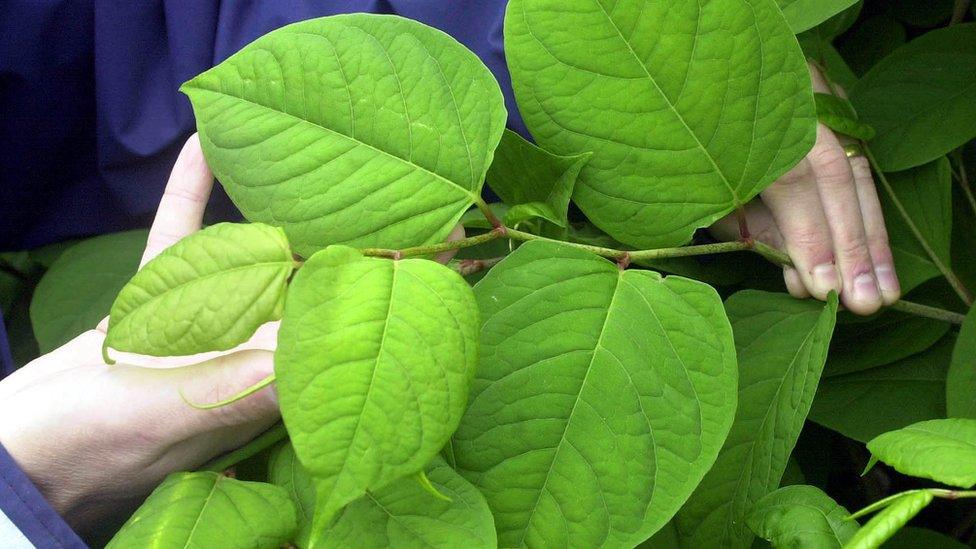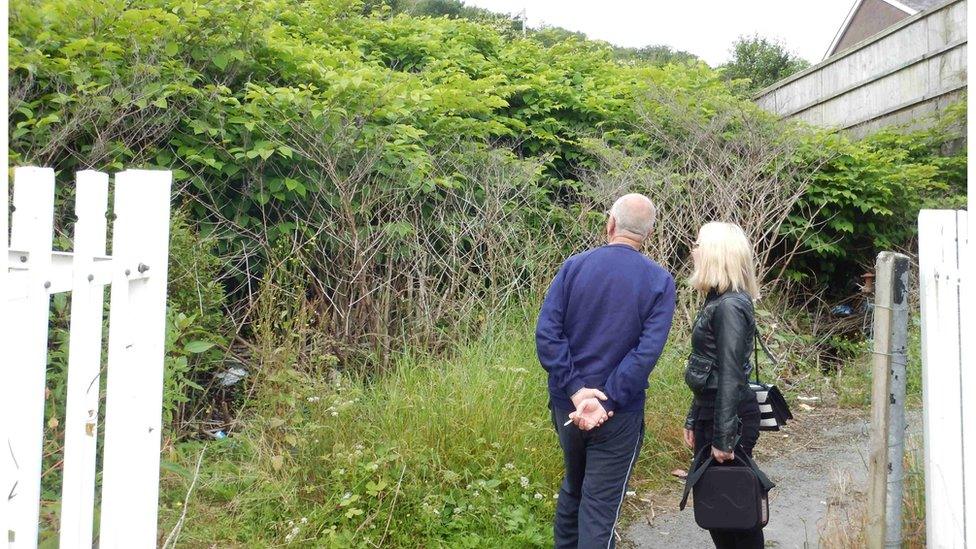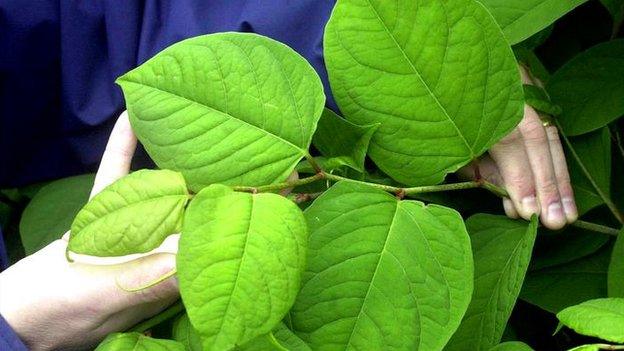Japanese knotweed tackled with insects in secret south Wales spots
- Published

The controlled release of insects which feed on Japanese knotweed is being stepped up at locations across south Wales.
Thousands of the bugs were released at six undisclosed sites last month with more over the summer with the aim of establishing a permanent population.
Scientists hope the insects, brought from Japan, will stunt the super weed, allowing native species to flourish.
Japanese knotweed was first found in the wild in Wales in the 1880s.
It was introduced by the Victorians for horticulture. Its 3-4m (10-13ft) stems, ornamental leaves and clusters of white flowers made it an attractive option for gardens.
But now the plant is prevalent throughout the UK and not only causes great damage to plant biodiversity, it is also causing problems for hard structures, including buildings and flood defences.
Sap-sucking bugs
In 2015 UK ministers accepted a national eradication programme would be "prohibitively expensive" at £1.5bn.
Scientists at the Centre for Agriculture and Biosciences International, a not-for-profit agricultural research organisation, have been licensed to test the insects, a psyllid or plant louse called Aphalara itadori, since 2010.
Dr Dick Shaw is leading the project with the sap-sucking bugs.
He told Radio Wales' current affairs programme Eye on Wales: "We're trialling different techniques of getting establishment. It's quite challenging to get these things established.
"I'm reassured that it took six attempts to get the grey squirrel established in Britain and that seems to have done fairly well for itself.
"We're now allowed to work near rivers so we've chosen riparian sites with high humidity and the chance of success is much higher."
He said the aim is for the insects to suppress Japanese knotweed's vigour so it "won't be the aggressive invader it is now".


Robin Waistell, 69, is locked in a legal dispute with Network Rail about the Japanese knotweed looming over his bungalow in Maesteg in Bridgend county.
Mr Waistell moved from Spain four years ago after his wife died but his dream of returning to the sun is on hold until he can sell the property.
He said: "The minute you mention Japanese knotweed, people don't want to know."
His legal team are waiting for a new court date at which they will claim Japanese knotweed on Network Rail's land has knocked up to £60,000 off the value of his property.
A Network Rail spokesperson said: "It wouldn't be appropriate for us to comment on an ongoing legal case."

The trials are the first time that a bio-control - the use of a "natural predator" to control a pest - has been used in the EU to fight a weed.
Wales was one of the first sponsors of the project with the then Welsh Development Agency part-funding a survey in 2000 to find a possible bio-control for the plant.
Swansea University researcher Dr Dan Jones uses a seven-and-a-half acre field at Taffs Well, near Cardiff, to evaluate control treatments for Japanese knotweed.
His PhD paper aims to show that there is no "one-hit wonder" for treating Japanese knotweed with herbicide and that persistence in the key.
Eye on Wales is on BBC Radio Wales at 12:30 BST on Sunday 24 July
- Published5 July 2016

- Published19 November 2014
